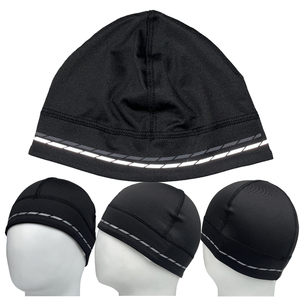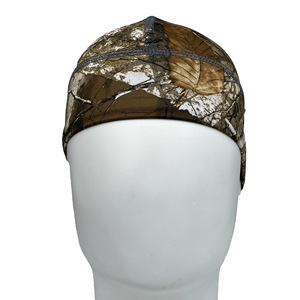
All categories
Featured selections
Trade Assurance
Buyer Central
Help Center
Get the app
Become a supplier

(968 products available)




















































Standard Capsule EEG Devices
The most apparent EEG asymmetry stakes involves primary diagnostic operation. Such a unit is operated conventionally and constitutes its limitations in CGF recording that relates to temporal access. These systems embrace portable features, fashionable fit heads, and main feasting headways to change and gather signs.
Wireless Capsule EEG Devices
For settings of limited movement, the wireless type of Capsule EEG systems is an appropriate choice. It discards the general connection wires, allowing easy monitoring in motion or while being on different medical schedules. This electronics capsule permits dynamic electroencephalogram recording without the clients feeling discomfort, which is prominent in phobia or baby departments.
Long-Term Monitoring Capsule EEGs
As concern over EEG asymmetry increases, long-term monitoring capsule EEG devices raise the extent of epilepsy observation and sleep disorders. These ece capsules are designed to provide patients with extended working hours without affecting comfort.
Sleep Monitoring Capsule EEGs
In detecting sleep accounts, access Capsule EEG systems are highly integrated. The Capsule EEG device used for sleep analysis is light and smooth, which doesn't affect the sleep structure of individuals. The equipment is used to pick up brain wave patterns when sleeping; thus, sleep studies are performed with higher accuracy.
The vigour and design of cap EEG systems directly affect their effectiveness in various fields of healthcare.
Material Quality and Durability
Caps eeg systems are usually designed to be highly durable. Common materials for the EEG caps include elastic fabrics with imbedded electrodes made of silver or conductive carbon.
This guarantees that the cap may bend through different examinations, afford continual usage, and cleanse effectively.
Water Resistance and Sensor Protection
Numerous Capsule EEG systems have water and dust protection, primarily when used in surgeries or critical care atmospheres.
Caps eeg, often come with water-proof EEG gloves and commonly placed seals within the tension and anxiety waves picked from these gadgets, thereby permitting their effective working in diverse circumstances.
Ergonomic Design
Capsule EEG systems are developed to fit the human head and be comfortable. Useful materials such as silicon and soft cloth enhance the patient's comfort.
The ergonomic design has reduced the discomfort level during EEG testing, which is commendable for long-term investigations.
Portability and Lightweight Construction
Due to the fact many Capsule EEG systems are constructed with portability and function in mind, they are light in weight and can easily be carried. That is an advantage for fieldwork or outdoor projects.
Besides that, the compact design allows the equipment to be moved, thus eliminating the need for complicated arrangements for the examination.
Neurological Disorders Diagnosis
Capsule EEG is a crucial tool for identifying neurological disorders such as epilepsy, brain tumors, and strokes. Its non-invasive nature makes it suitable for extended monitoring, helping clinicians pinpoint abnormal electrical activities in the brain over time.
Sleep Studies
In sleep medicine, EEG caps are used to diagnose sleep disorders like insomnia, sleep apnea, and narcolepsy. By recording brain waves during sleep, doctors can analyze sleep patterns and provide effective treatment plans.
Psychiatric Assessment
Caps EEGs are also used in psychiatry to study conditions such as depression, anxiety, and schizophrenia. Research in this area focuses on identifying specific brain wave patterns associated with various mental health disorders, leading to more tailored therapeutic approaches.
Intraoperative Monitoring
Capsule EEGs play a vital role in neurosurgery by monitoring brain activity in real-time during surgical procedures. This helps maintain the brain’s functional integrity and prevent damage to critical areas, especially in surgeries involving tumors or epilepsy.
Brain-Computer Interfaces (BCIs)
With advances in technology, Capsule EEGs are now used to develop brain-computer interfaces for communicating with patients who have lost motor abilities.
By translating brain waves into commands, these interfaces can assist in rehabilitation or even control external devices, offering newfound independence to patients.
Assess Product Quality and Certification
While sourcing eeg caps, hospitals need to give priority to quality products that will ensure accurate testing results. Information and Certificates regarding quality and safety, such as ISO, CE, and FDA, should be checked because they affect performance and warranty compliance to international regulations.
Understand Manufacturer Reputation
In order to source suitable EEG caps, one must get familiar with the reputation of the manufacturers within the market. Those manufacturers that are well known have great systems and customer feedback in support of them. Hospitals can benefit from working with manufacturers with prior experience in neurodiagnostic equipment to ensure quality and continued service are given priority.
Evaluate Product Range and Customization Options
Caps EEG systems come in various sizes, ranging from simple to very complex, accommodating various clientele needs. Clinics must ensure they can get products for diverse patients, like those suited for babies or those with special head shapes.
Consider Pricing and Budget
The balance between the quality and costs of the eeg cap must be considered. While the price of a product is vital, in most cases, it doesn't quite reflect the performance or warranty of one product; so, it's necessary to conduct a market survey. Hospitals can get the most effective deals by purchasing in wholesale, which translates to low unit cost.
Assess After-Sales Support and Warranty
Good support after the sale and warranty can be very important in the sourcing strategy. Buyers must understand the warranty conditions and whether there is provision for the replacement of parts. Availability of technical support, servicing, and equipment training are pertinent factors that ensure the product is in optimal functioning condition.
ANS: A Capsule EEG is a non-invasive brain mapping diagnostic process. Small electrodes are placed on the scalp through a soft stretchy cap to measure electrical brain activity.
ANS: A capsule EEG is a brief diagnostic procedure while a traditional EEG can last hours or days and gives a comprehensive view of brain activity.
ANS: People having seizures, unexplained fainting, unusual behaviour or confusion, or severe headaches may need a capsule EEG to check the electrical activity in their brain.
ANS: There are no risks or side effects. It's painless and non-invasive. Patients might feel mild discomfort from the electrodes but nothing more than that.
ANS: The results of a Capsule EEG show the patterns of electrical activity in the brain. A neurologist looks at the waves to see if the brain is working normally or if there are any problems like too much or too little activity or something wrong with brain waves in specific areas.